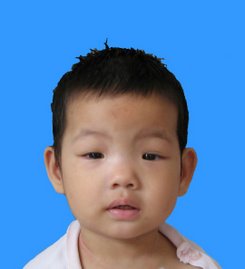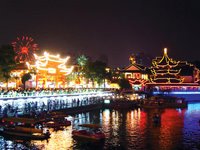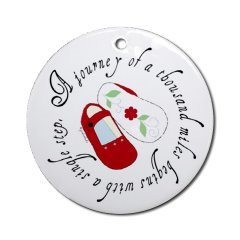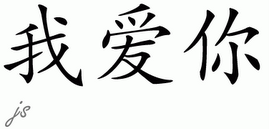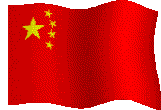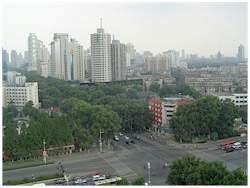Today we opted out of the trip to the park and hung out at the hotel as well as the vendors. We needed to sleep in a bit! So I thought I'd post some of the cultural differences and amusements today.
* (Kids may want to skip this paragraph.) It is unusual to NOT be stared at and pointed at here. If we pause, we are sure to gather a crowd. Our agency has supplied us with neck ribbons attached to a card explaining why we are hereas well as why we have a Chinese girl with us in case it gets sticky. We've used it more than once. Disabled people fare worse. Our group has a little guy with an unrepaired cleft palate and an adopting parent who is overweight. These two get pointed to, laughed at, and imitated. Every once in a while there is a diabled person begging and the Chinese people rush to cross the street to avoid contact. One person was told about their cleft-affected child, "we throw them away." A guide told us, "We know there are orphans and their life is hard, but we don't care." They do not understand us "Crazy Americans" and tell us so.
*We so far have not plunged our toothbrushes under the tap water; yeah! If we did, we'd have to throw away the toothbrush. The tap water is unsafe for "foreigners" as well as locals. We also are remembering to throw the toilet paper into the waste basket as we cannot flush it. The sewer system could not handle that. And we have avoided ice. The locals here do not have anything cold. Ice and cold drinks are new.
*There is no personal space. This is most noticable in driving. Just nose in (no matter if it is not your lane or if you are crossing five lanes) and if you are bigger or arrive a fraction of a second earlier, it's all yours. Crosswalks are a bit like the old game, "frogger."
*There is a very repulsive smell coming from the sewer grates. No surprise there. But it also comes from every restaurant and food vendor. Thankfully, you do get accustomed to it while you are sitting in the restaurant or you would most likely not be able to eat. Unless, of course you are more adventuresome, like Chris. Tonight he enjoyed eel as well as the duck (served whole) and other treats as we went out with our guide.
*The mattresses in Beijing were very hard. The mattresses in Nanjing are surprisingly more hard. We hear the hardest is yet to come in Guanghzou!
*The laws passed against spitting in public in Beijing (for the Olympics) are not being followed. But laws, we are told, are suggestions anyway.
*If you need to use the squatty potty, you will find a way. And there are usually sinks to wash your hands. But no soap. We went to a supermarket and I followed a cashier through the system who'd just run Chris' card. A quick rinse, no soap, and back to the groceries!
*We saw a group of Goth Chinese today. They received even more attention than we do and also got lots of dirty looks. If Goth is rejecting the culture, I can see that this would be even more of an insult to the Chinese.
*There is lots of what we've heard referred to as "Chinglish." It is English in the signs and sayings that follows Chinese grammar rules or is poorly translated. There is not so much in Nanjing as there is usually no English at all, but it was all over Beijing. Now I cannot think of examples. But there is a sign by the elevators here that reads "rubbish recepticle" by the trash can. There are better examples; wish I could think.
*Smoking is everywhere, including the elevators.
*Lastly, there is no firm price (except the supermarket and malls). Everything is bartered. The vendors try to hide their excitement when a foreigner comes to their stall, but it is difficult for them. They could make a profit off one American to equal a month's wages, or more. We decided to barter for the girls' dresses and a shirt for the rest of us in Chinese tradition. Each purchase has a story, but here's my favorite; it is for my shirt. Walk in. Swarmed by two salesladies. (Jill explained 5 years ago no one would have waited on us because they were all paid the same whether they work or not. Now pay is by commission.) I picked out the shirt, asked the price. 360 yuan. (1 US dollar = 7.6 yuan.) I say, "No, thank you" and shake my head. "No?" (gives me calculator) "How much?" I type in 30. Salesclerk pretends to be shocked and dismayed. Fellow sales girl enters and begins bemoaning she was gone when the Americans came. She is clueless how much is communicated in non-verbals/tone and the word, "American" which sounds like "American" in Mandarin! "Okay, 220 yuan." "No, 30." "120" "No, thank you. (walk away). "Wait! 90!! 90!" "No, 30, thank you, I'll go over there." "Okay, okay, 40." "Deal." They still made a killing, but it's the price I was going for. Gullible American.
We leave for Guanghzou tomorrow. We may or may not have internet access and may or may not be able to send pictures if we do. We have one week down!!!! We are glad we came.
* (Kids may want to skip this paragraph.) It is unusual to NOT be stared at and pointed at here. If we pause, we are sure to gather a crowd. Our agency has supplied us with neck ribbons attached to a card explaining why we are hereas well as why we have a Chinese girl with us in case it gets sticky. We've used it more than once. Disabled people fare worse. Our group has a little guy with an unrepaired cleft palate and an adopting parent who is overweight. These two get pointed to, laughed at, and imitated. Every once in a while there is a diabled person begging and the Chinese people rush to cross the street to avoid contact. One person was told about their cleft-affected child, "we throw them away." A guide told us, "We know there are orphans and their life is hard, but we don't care." They do not understand us "Crazy Americans" and tell us so.
*We so far have not plunged our toothbrushes under the tap water; yeah! If we did, we'd have to throw away the toothbrush. The tap water is unsafe for "foreigners" as well as locals. We also are remembering to throw the toilet paper into the waste basket as we cannot flush it. The sewer system could not handle that. And we have avoided ice. The locals here do not have anything cold. Ice and cold drinks are new.
*There is no personal space. This is most noticable in driving. Just nose in (no matter if it is not your lane or if you are crossing five lanes) and if you are bigger or arrive a fraction of a second earlier, it's all yours. Crosswalks are a bit like the old game, "frogger."
*There is a very repulsive smell coming from the sewer grates. No surprise there. But it also comes from every restaurant and food vendor. Thankfully, you do get accustomed to it while you are sitting in the restaurant or you would most likely not be able to eat. Unless, of course you are more adventuresome, like Chris. Tonight he enjoyed eel as well as the duck (served whole) and other treats as we went out with our guide.
*The mattresses in Beijing were very hard. The mattresses in Nanjing are surprisingly more hard. We hear the hardest is yet to come in Guanghzou!
*The laws passed against spitting in public in Beijing (for the Olympics) are not being followed. But laws, we are told, are suggestions anyway.
*If you need to use the squatty potty, you will find a way. And there are usually sinks to wash your hands. But no soap. We went to a supermarket and I followed a cashier through the system who'd just run Chris' card. A quick rinse, no soap, and back to the groceries!
*We saw a group of Goth Chinese today. They received even more attention than we do and also got lots of dirty looks. If Goth is rejecting the culture, I can see that this would be even more of an insult to the Chinese.
*There is lots of what we've heard referred to as "Chinglish." It is English in the signs and sayings that follows Chinese grammar rules or is poorly translated. There is not so much in Nanjing as there is usually no English at all, but it was all over Beijing. Now I cannot think of examples. But there is a sign by the elevators here that reads "rubbish recepticle" by the trash can. There are better examples; wish I could think.
*Smoking is everywhere, including the elevators.
*Lastly, there is no firm price (except the supermarket and malls). Everything is bartered. The vendors try to hide their excitement when a foreigner comes to their stall, but it is difficult for them. They could make a profit off one American to equal a month's wages, or more. We decided to barter for the girls' dresses and a shirt for the rest of us in Chinese tradition. Each purchase has a story, but here's my favorite; it is for my shirt. Walk in. Swarmed by two salesladies. (Jill explained 5 years ago no one would have waited on us because they were all paid the same whether they work or not. Now pay is by commission.) I picked out the shirt, asked the price. 360 yuan. (1 US dollar = 7.6 yuan.) I say, "No, thank you" and shake my head. "No?" (gives me calculator) "How much?" I type in 30. Salesclerk pretends to be shocked and dismayed. Fellow sales girl enters and begins bemoaning she was gone when the Americans came. She is clueless how much is communicated in non-verbals/tone and the word, "American" which sounds like "American" in Mandarin! "Okay, 220 yuan." "No, 30." "120" "No, thank you. (walk away). "Wait! 90!! 90!" "No, 30, thank you, I'll go over there." "Okay, okay, 40." "Deal." They still made a killing, but it's the price I was going for. Gullible American.
We leave for Guanghzou tomorrow. We may or may not have internet access and may or may not be able to send pictures if we do. We have one week down!!!! We are glad we came.

